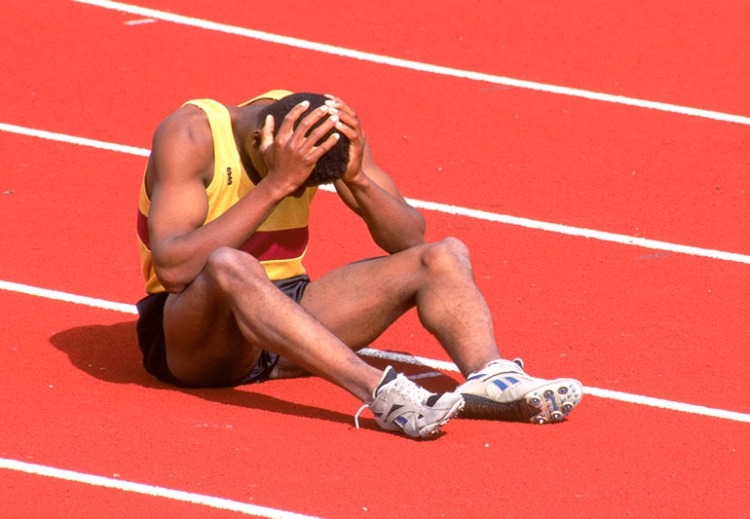Professional athletes who devote all of their time and effort to sport are expected to perform consistently at top level. One of the most common challenges that athletes experience on a daily basis, and even more so during competitions is pressure. Sports psychologists and mental coaches study the effects of pressure on players in order to better understand how they react under pressure and how that affects their performance. In light of this, we spoke to Dr. Haitham Gheita, a Certified Sports Mental Coach, to learn more about this complex relationship and how players might break free from the pressure.
There are two types of pressure, as Gheita mentions, one internal and one external. Social media, fans, parents, and even friends can exert external pressure. Internal pressure, on the other hand, is the result of placing too many expectations on oneself and developing beliefs that lower one’s self-esteem, such as “I’ll never win this match with such a performance” or “I’m not good enough to be in the starting 11.” All of these negative thoughts damage our mental condition and put us under more stress.
Gheita went on to say that there are three pressure spectrums and that athletes normally fall into at least one of them. The first is a situation in which there is no pressure at all, and the athlete is hardly motivated to compete nor win, the second is a high-pressure environment that prevents athletes from putting out their best efforts and the third is a moderate one, in which there is a small amount of pressure and the athlete’s performance is at its best. Gheita went on to say that no one wants to be under pressure since it will inevitably affect their performance. The second, the pressure-free zone, is not the best location to be during a performance because it depletes adrenaline. The third position is moderate, and athletes should strive to achieve it. A small bit of pressure while maintaining control over all of the feelings and expectations we have for ourselves.
Consider Mohamed Salah, who rose to fame as a result of his outstanding performances that propelled him from one European club to the next till he settled at Liverpool and became one of the top goal scorers in the English Premier League. He is seen as a hero for Arabs, born in a small town in Egypt, Nagrig Salah is an idol in his home town and the world. Salah’s performance is extremely steady, as he focuses on the moderate end of the scale, he places a modest amount of pressure on himself to reach new career milestones and win tournaments, but he also realizes that he plays tough European teams and that winning every match and scoring goals is not an easy feat.
Salah’s performance with the Egyptian National Team, on the other hand, illustrates that both external and internal pressures have a big impact on his ability to succeed. How so? Well, Salah’s consistent achievements have led to supporters expecting him to develop into a player who consistently makes a difference in the game. Whether it’s providing assists or scoring goals himself, he’s a force to be reckoned with. Salah puts pressure on himself to achieve and win tournaments with his national team, even if this isn’t achievable in every game. Therefore, he has struggled with the national team at times because of this. For example, Salah’s problem with pressure was evident during Egypt’s encounter against Senegal in the African Cup of Nations (AFCON) final. What was going on in his mind? Gheita claims that his penalty shootout loss was due to increased pressure on winning the AFCON and adding another tournament to his resume. Don’t get me wrong: Salah performs admirably under pressure to deliver and set new marks, but severe pressure from both internal and external sources evidently effect his performances.

Gheita also mentioned that supporters play a significant part and that awareness is crucial because spectators can’t put themselves in the shoes of the players, making it impossible for them to appreciate their own mental struggles before and after the game. However, this is not always the case, as evidenced by Liverpool’s welcoming parade following their loss in the Champions League Final to Real Madrid. Liverpool’s fans greeted them as if they had won the Champions League, although they had not. They may have won the FA Cup and the EFL Carabao Cup, but their fight in the Champions League and even the Premier League was admired by supporters. Their consistency was also important, as they had dominated the top four spots in the Premier League rankings for years, with an outstanding winning streak.

We can say that success leads to increased external and internal pressure, with athletes needing to control the two types of pressure. Feryal Abdelaziz, a professional Karate player, won the gold medal at the Tokyo Olympic Games’ Karate competitions, giving Egypt its first gold medal. Because few people knew about her career, the pressure was kept to a minimum both internally and publicly, as Gheita said. Now she has a beautiful career that will inspire younger generations to become Karate champions as well!
Finally, while both types of pressure are often uncontrolled in sports, it is the athlete’s mentality that limits the pressure and converts it into good energy.




